What happens when a young man inherits a fortune but then uses his inheritance to challenge the systems which created it in the first place? We may be about to find out. The sale of leading German pharmaceuticals company Schwarz Pharma in 2006 changed the life of Antonis Schwarz, 16 years old at the time. He talks to Alliance editor, Charles Keidan, about his philanthropic vision and what motivates him to keep driving forward.
Schwarz Pharma was founded in 1946 by Rolf Schwarz-Schütte, great-uncle of Antonis, who is a third-generation member of the eponymous German family.
Now 29, he is shifting his wealth into philanthropy and social investments and has clearly thought long about his inheritance and philanthropic aims.
Wealth can be ‘a two-edged sword’, Schwarz points out as we start our interview. ‘It can be a burden but it can also be liberating,’ he says. ‘From the one side it’s family assets that you have to look after and on the other hand it enables you to “live out your dreams”.
In my case, this means making the world a better place I guess.’
This idealism might seem noble if somewhat unremarkable.
In today’s world of vast wealth concentrations, much is being written about the multi-trillion transfer of wealth and the commitments of new generations of wealth holders to directing some of it to philanthropic causes.
Indeed, banks and other intermediaries invest significant effort in stewarding the resources of the wealthy – for the benefit of the families and society – and of course cultivate clients in the process from one generation to the next.
Scholars of philanthropy have honed in on how the heirs to family fortunes – such as Rockefeller, Soros, Hilton, Mitchell and Pritzker – are inheriting billions and changing philanthropy in the process.
‘Generation Impact’ is, we are told, impatient with traditional philanthropy and grantmaking.
Rather it is network based and takes a global view. It seeks instant results and is comfortable with new technology.
Some of these characteristics are true of Schwarz – we speak via Skype – and, in common with many wealthy people, he adopts an almost British-like reticence when discussing money.
With surely some under-statement, he comments, ‘I grew up in an upper middle class setting… I still went to university, did my studies, worked,’ before acknowledging, ‘but yeah, I was confronted with the situation early on in my life that I don’t have to work if I don’t want to.’
He refers to the conflict between his social conscience and his affluence as ‘a struggle’.
The challenging one
Some might take exception to the idea that having the wealth not to work is a struggle. But what makes Antonis Schwarz sound entirely different to many of his wealthy peers are the profound and far-sighted questions he is asking – of himself, his family, of other foundations and of society in general, which boil down to one thing: rising inequality and the degradation of people and the planet means that we – as individuals, families, foundations and as a species – cannot go on with ‘business as usual’.
Antonis Schwarz is asking questions that go to the heart of philanthropy and its relationship to sustainability, injustice and inequality. This puts him in a challenging position and, potentially, on a collision course with others in the foundation sector.
To Schwarz, that means using resources now to back social movements, tackle climate change and, most radically, to challenge what he calls ‘distorted narratives’.
The emphasis on acting now rather than investing in perpetuity is also striking. Schwarz wonders aloud about ‘…the point of us, or our children or grand-children standing on a pile of money, if by the year 2100 we’ve completely wrecked the planet?’.
In short, Antonis Schwarz is asking questions that go to the heart of philanthropy and its relationship to sustainability, injustice and inequality.
This puts him in a challenging position and, potentially, on a collision course with others in the foundation sector. Do they have the same urgency, or even share his diagnosis and adopt the same remedies?
Schwarz is quick to recognize that the conventional thinking, social norms and operating models of family offices, and by extension the philanthropic sphere, are typically far more cautious and conservative. ‘As a person of wealth, it is absolutely taboo to speak about inequality,’ he comments.
Yet Schwarz has found encouragement and even role models among the older generation of philanthropists, in particular Chuck Feeney, the man who founded The Atlantic Philanthropies which closed down last year after spending its last dollars.
‘In the beginning actually, I was just thinking my big role model is Chuck Feeney,’ he says. ‘The guy is incredible, he just was under the radar and did all of these amazing things.’
Navigating the challenges
That contributed to Schwarz setting up a foundation of his own in 2016 – the Guerrilla Foundation – hiring social movement expert, Romy Kramer, to lead it.
‘In the end we decided okay, if we wanted to be serious in the foundation sector with the NGOs’, they needed an organizational vehicle for his philanthropy. While the foundation doesn’t have assets as such, it does have ‘a fixed budget’, with annual contributions set by Schwarz himself.
Arguably, the foundation’s most distinctive focus is its funding of politically liberal and progressive social movements, something rare among foundations.
Aside from the foundation, other aspects of Schwarz’s set-up also seem quite conservative – or at least less radical – than the rhetoric. There is a family office in Munich run by his father together with a CEO.
The young Antonis currently has approximately one quarter of his assets allocated to philanthropy and impact investing, with the intention of growing this amount to 100 per cent over time.
The Guerrilla Foundation is now hitting its stride and Schwarz has begun to express his vision through the direction it’s taking.
Arguably, the foundation’s most distinctive focus is its funding of politically liberal and progressive social movements, something rare among foundations.
‘I think I just realized that giving grants to social movements has the most impact, period. You can fight the symptoms but the most impactful stuff is where you really try to go to the root cause.’
‘I think I just realized that giving grants to social movements has the most impact, period. You can fight the symptoms but the most impactful stuff is where you really try to go to the root cause.’
Here, Schwarz has also identified a gap in the funding eco-system.
‘The social movements and the activists are chronically underfunded and they have arguably always been. Foundations have traditionally been reluctant to give money to activists, also where the result is not one hundred per cent measurable and clear etc. So there is a lot of boldness involved there. And I think also when you do some critical thinking around the problems in this world you reach certain conclusions.’
This refreshingly philosophical lens for his funding is striking and unusual.
‘This is a species issue; this isn’t only about turning off the tap when you brush your teeth, it’s about a huge collective mind-shift that we have to undergo as a species. And we have to be aware that we’re a species first of all. And I think when we ask all of these questions you come to a certain conclusion that you need to act.’
A possible clue to this political direction of his philanthropy came from his postgraduate interests. After doing a master’s in Madrid, Schwarz travelled to Athens.
There he set up an NGO called Vouliwatch, which is engaged in transparency in politics.
That was at the end of 2013. ‘I saw a huge need for philanthropic funding – I mean literally from refugees. Still now to this day, with the islands, there is a really terrible situation.’
The experience also introduced him to the social entrepreneurship scene, where he supported Ashoka, thus the young Schwarz became familiar with social investments as well as social movements.
Social entrepreneurs and social movements
The duality between more left-wing oriented social movements and more market oriented social entrepreneurs is a feature of Schwarz’s identity that is also reflected in his philanthropic work.
‘I’ve been to so many events, a lot of events where you eat your canapes, you drink your champagne, you talk about your impact investments, etc, and then I think to myself, it doesn’t matter if you own 99 per cent of a coal plant or 99 per cent of a solar power plant, the inequality remains the same, and the social challenges.’
So how do the two sit together? ‘They’re not mutually exclusive,’ he comments, before adding that his ‘real aim’ is to get impact investing to confront its own shortcomings. He notes, ‘one of my problems with impact investing… is that it doesn’t do away with the problem of income inequality.’
Here, one wonders whether he sees impact investing – and the buzz it attracts – as one of the ‘distorted narratives’ he is trying to change. Is it just an extension of a mindset in which those at the top can feel they’re doing good while not changing underlying structures?
His dissatisfaction is clear. ‘I’ve been to so many events, a lot of events where you eat your canapes, you drink your champagne, you talk about your impact investments, etc, and then I think to myself, it doesn’t matter if you own 99 per cent of a coal plant or 99 per cent of a solar power plant, the inequality remains the same, and the social challenges.’
Conviction to lead a meaningful life
Is it a solitary life? Schwarz acknowledges that there could have been easier paths to follow: ‘I have friends who are going to McKinsey and all these amazing law firms and I’m kind of outside the system a bit in my philanthropy bubble.’
He also suggests that the path he has chosen can at times be lonely: ‘It’s also not easy for me because when people ask, “so what do you do?” and you say, “I’m a philanthropist and I’m 29”, it’s not easy at all from an identity point of view.’
But despite that his conviction to lead a meaningful as well as a good life remains strong.
‘I’m asking myself with the way I lead my life, when I look back on it, does it make sense to me? And actually it really does. That’s a nice thing with the Guerrilla Foundation – that it’s not always easy, but it makes sense.’
Schwarz is optimistic that he can take people with him. Giving way to some false modesty, he says: ‘I don’t want to put myself on a pedestal here, but for those that have let’s say a similar economic background and mindset as I do, I have heard them say that I’m their secret hero, and they really like what I’m doing. And they say, “I work at this company and I feel like I’ve achieved nothing in my life, and when I look back at my life I don’t really have anything that I can hold onto with meaning”.’
His interactions with philanthropic sector bodies is also noteworthy. The Guerrilla Foundation is a member of the German Association of Foundations and attends the European Foundation Centre’s annual conference, where he rubs shoulders with more conservative peers.
So far, he seems to be relishing his role as ‘agent provocateur’ in the foundation world.
He also sees grounds for optimism that philanthropy will take a more progressive turn. ‘There is an awakening I guess… inside the philanthropy sector’ although he acknowledges that ‘power does not like to be questioned’.
In another of his sweeping visions, Schwarz points out that ‘the history of humanity is how much we can stand up to power and question it’.
Here he seems most at home, and most optimistic, referring to a less well known philanthropic network called EDGE (Engaged Donors for Global Equity) which he says represents his kind of thinking.
So how does he see his role of using his privilege and position to get more people to EDGE?
Schwarz’s participation on the Harvard-Zurich programme, which connects and educates wealthy elites, sheds an interesting light on this pursuit.
He refers cryptically to the ‘rabbit hole’ which takes the most enlightened out of social elitism and into the horizon of higher consciousness – an involvement with the EDGE Funders Network or even the establishment of a European counterpart to Resource Generation, which helps young people with wealth in the US to shift resources and power to society’s most disadvantaged.
The same logic seems, at least in part, to have been behind the establishment of a Centre for Sustainable Finance and Private Wealth at the University of Zurich’s Department of Banking.
One wonders how many who pass through its doors will follow Schwarz’s path?
Other challenges remain particularly around his family investments and mission. Here he acknowledges that the cultural norm for asset managers and portfolio managers is to maximize assets, not really to be conscious of the nature of investments from the point of view of the environmental or social impact.
Schwarz ends the discussion as he began, suggesting that things can and must change: ‘It’s a real uphill struggle… but I’m trying to be optimistic.’
Charles Keidan is editor of Alliance. Email charles@alliancemagazine.org.

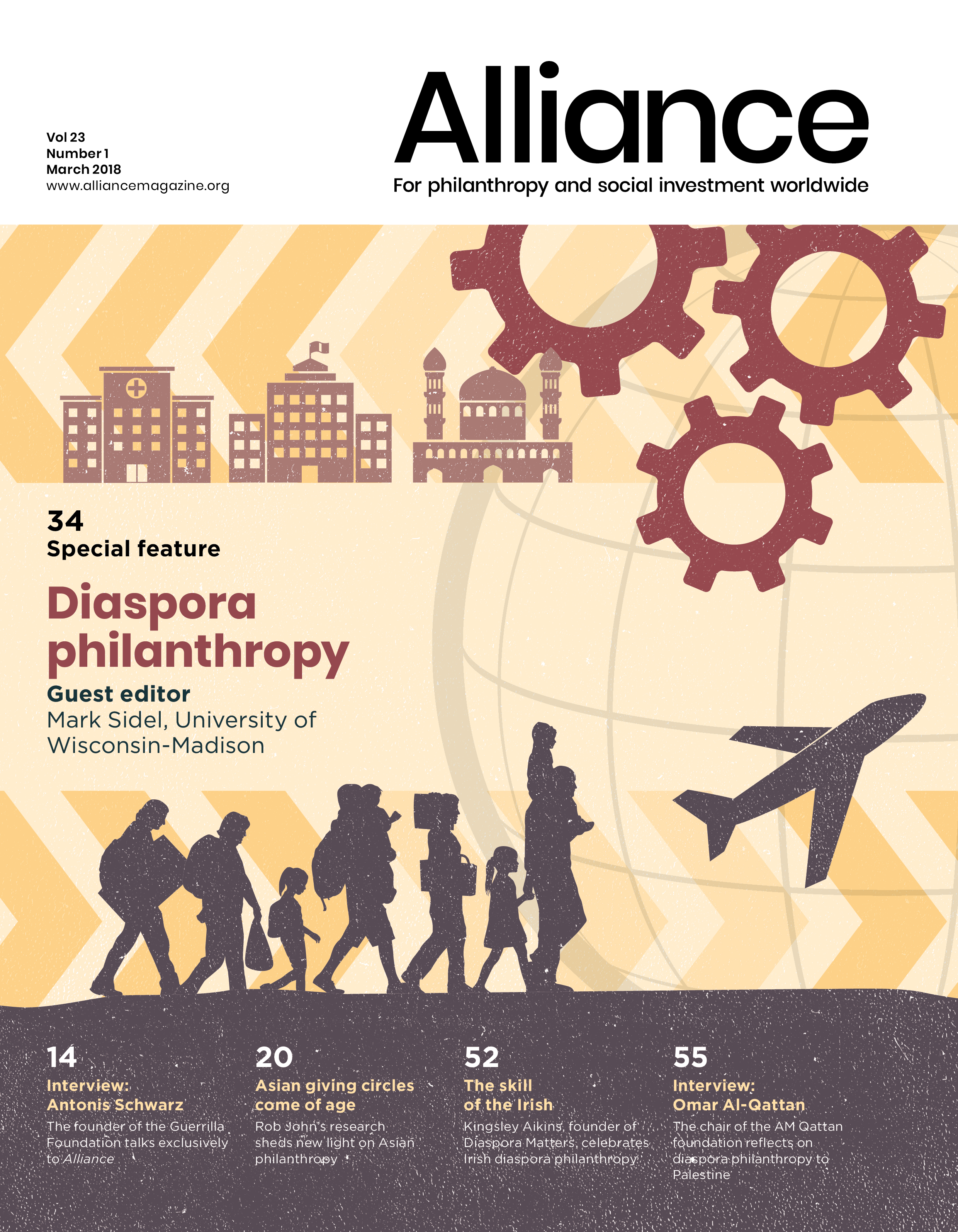
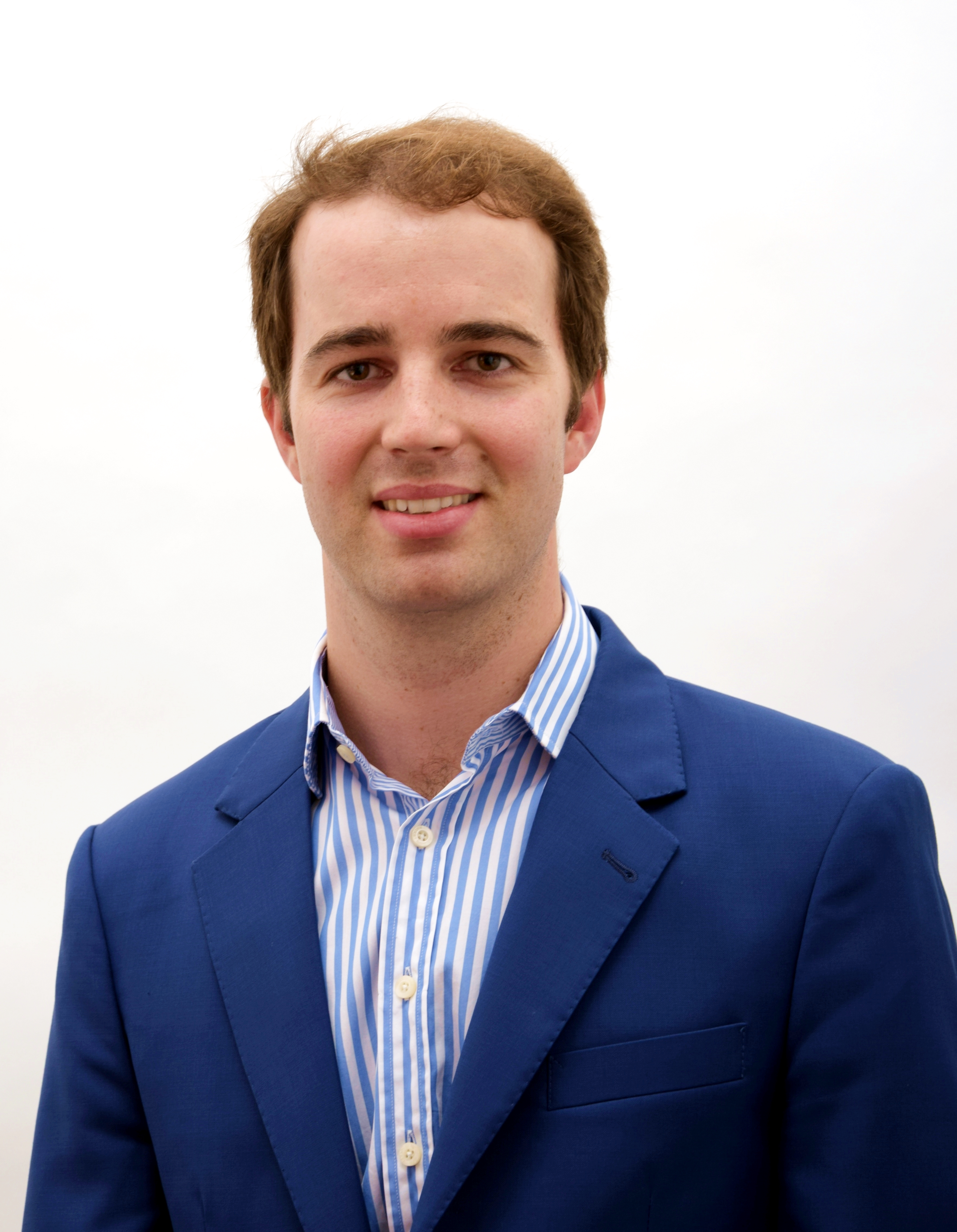

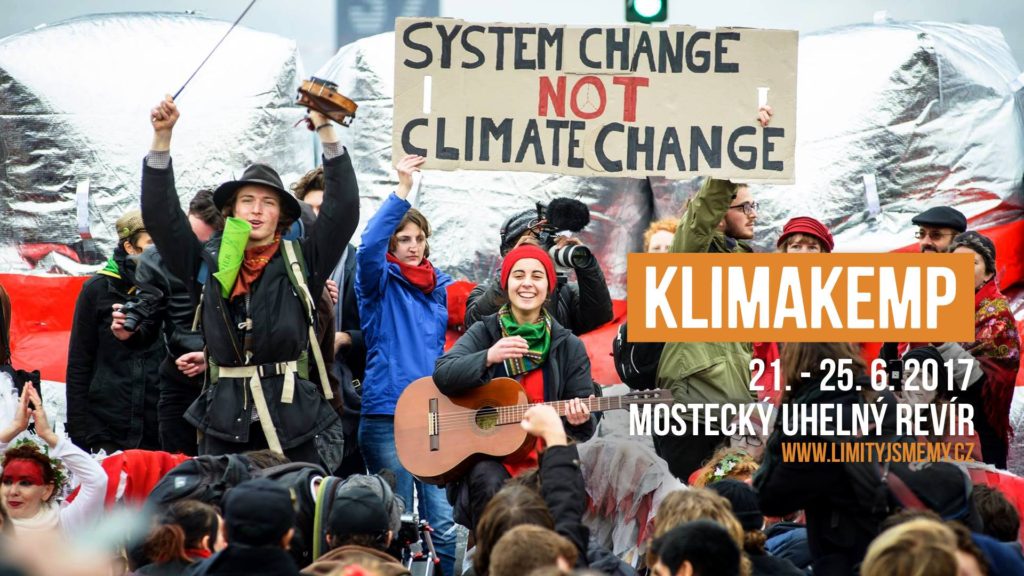
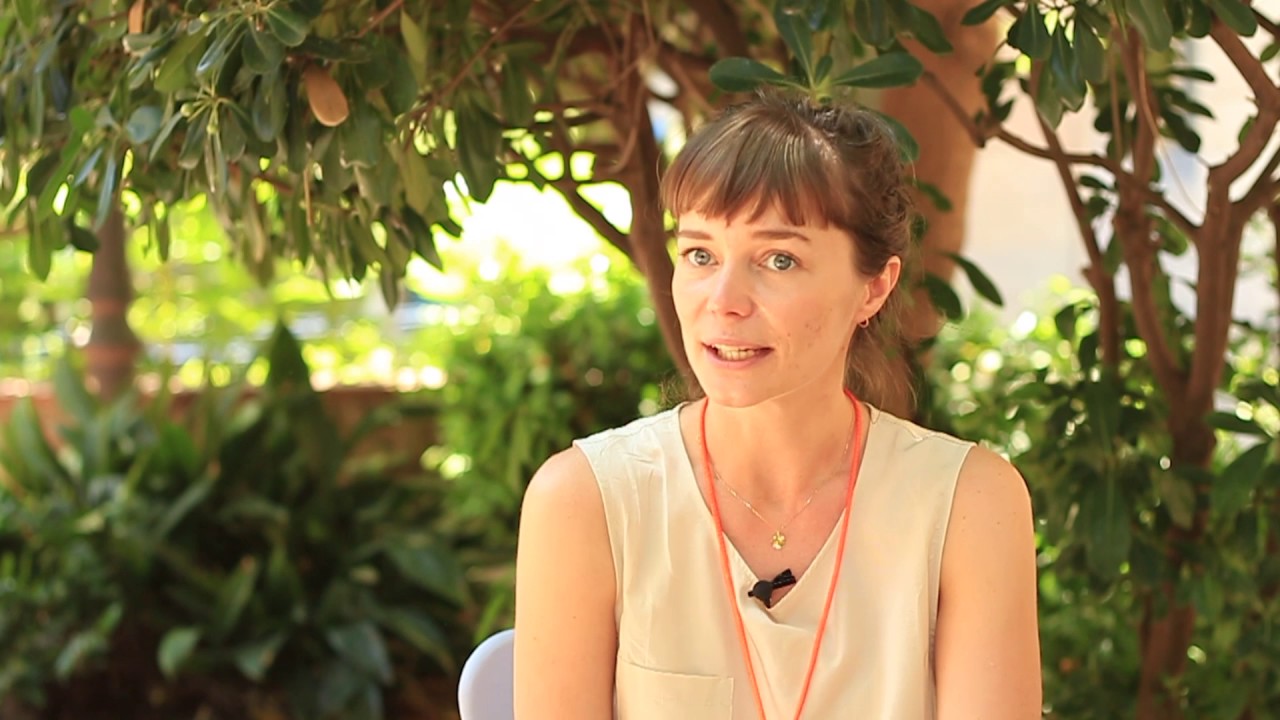
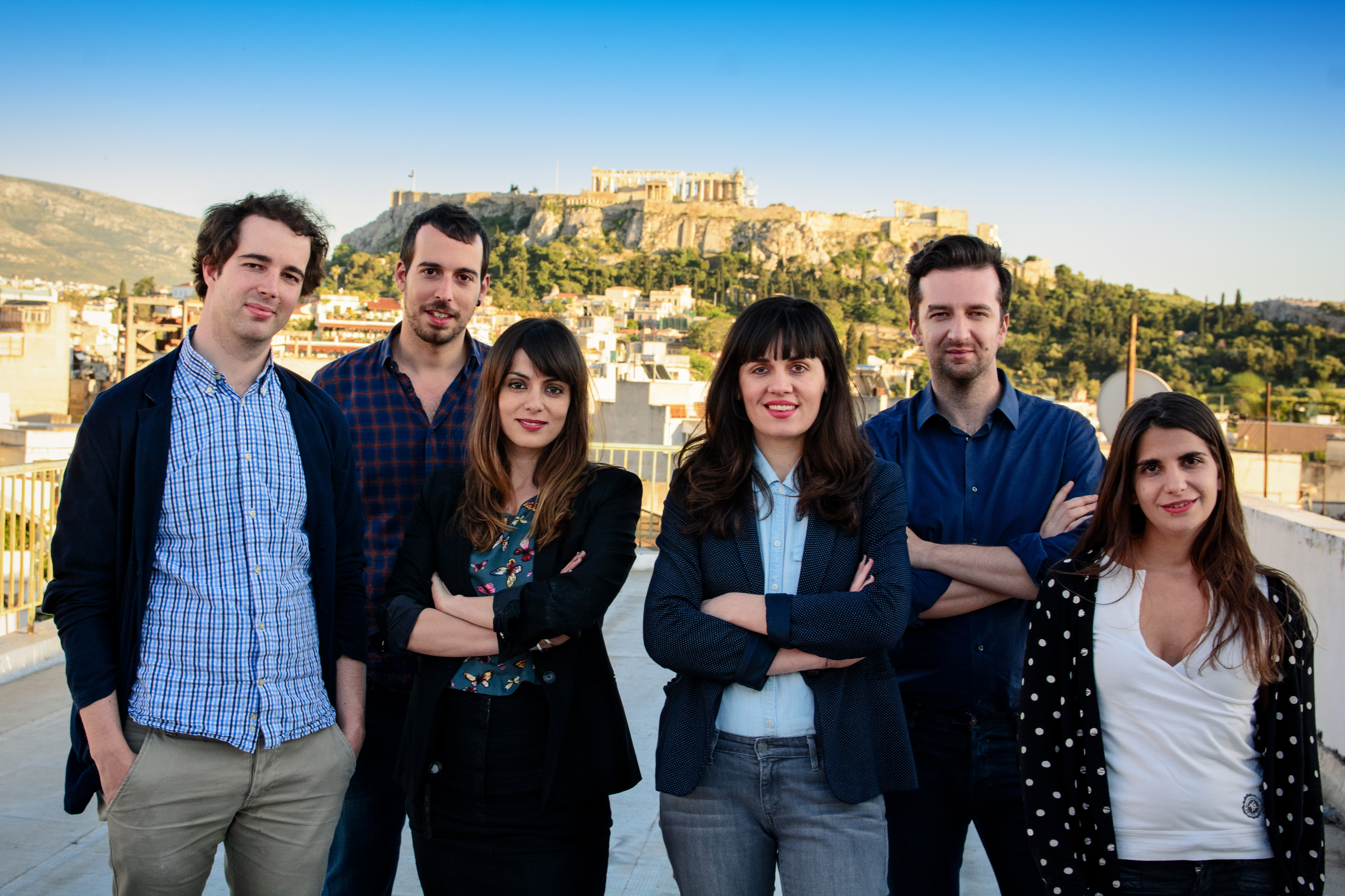
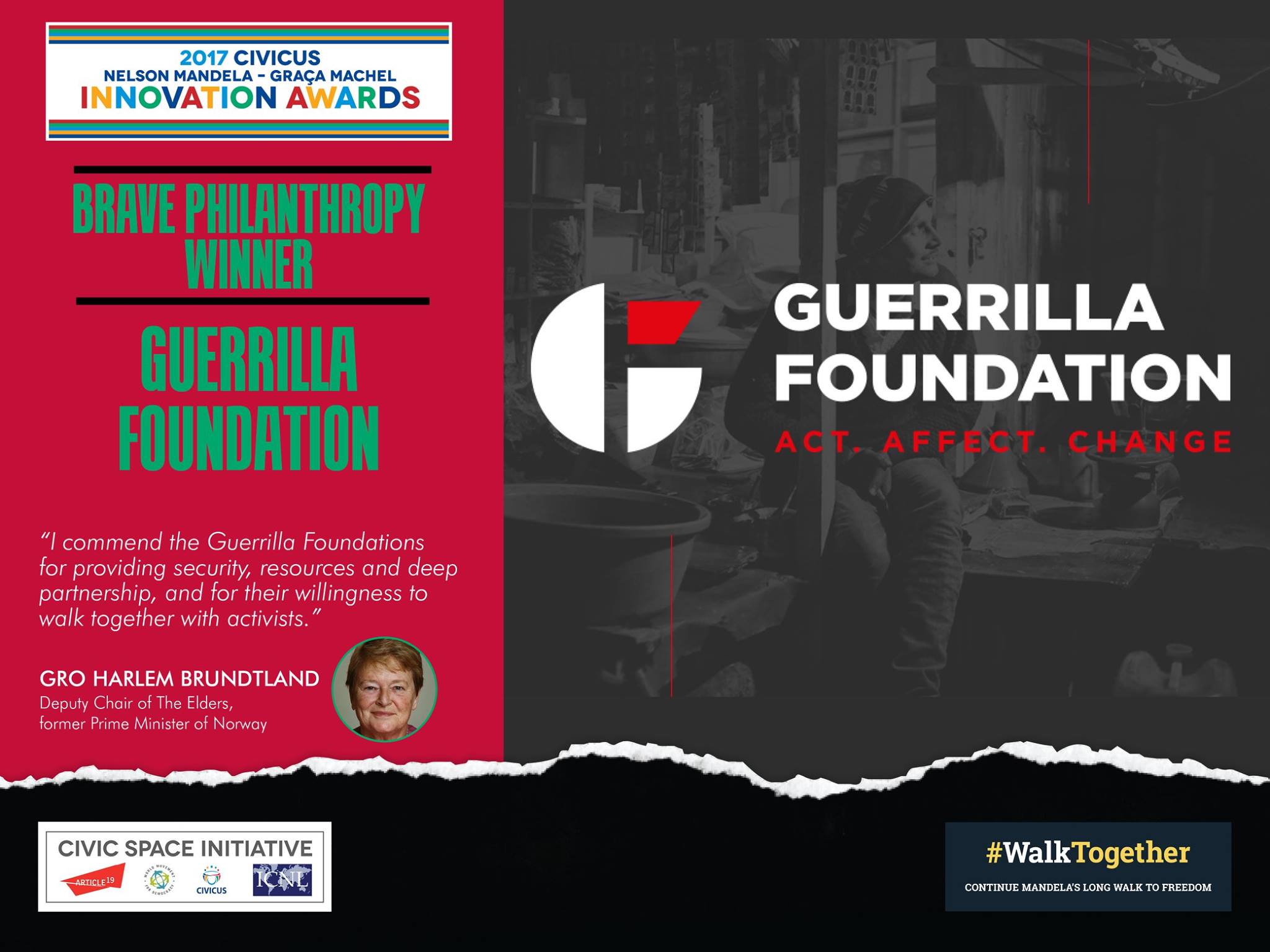



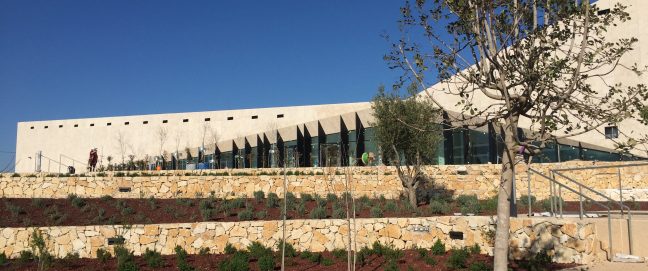

Comments (2)
Oh, sorry. that is English-speaking here, didn't realize :-o So, again: Did A.S. ever pay taxes (heritage, income or otherwise) on his "philantropy" (= power!)? And: "Arguably, the foundation’s most distinctive focus is its funding of politically liberal and progressive social movements, something rare among foundations". How removed / blind / just lying is this: Barring a few exceptions (Korn Bros) ALL Foundations sow their ideas at the left / radical-left part of the political / ideas spectrum, be it Bertelsmann, Soros, Ford, MaLisa, AmadeuAntonio a.m.others or now Schwarz. Only piece missing is the (disclosure of the?) China connection, otherwise business as usual: Down with all things "white".
Jemals Erbschafts- oder sonstige Steuern auf seine "Philantropie (=Macht!) gezahlt? Und: "Arguably, the foundation’s most distinctive focus is its funding of politically liberal and progressive social movements, something rare among foundations". Wie realitätsblind / erlogen: Mit wenigen Ausnahmen (Korn Bros) säen ALLE Stiftungen linke bis linksradikale Ideen, sei es Bertelsmann, Soros, Ford, MaLisa, AmadeuAntonio u.v.m. oder nun Schwarz. Fehlt nur noch die (Aufdeckung der) China-Connection, sonst alles wie gehabt: Nieder mit "dem Weißen".